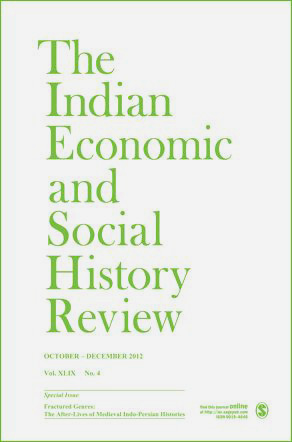The local universality of poetic pleasure: Sirājuddin ‘Ali K- h- ān Ārzu and the speaking subject
The concept of the speaking subject that fundamentally underlay all Perso-Arabic discourses on language came to be constituted as a problem in mid-eighteenth-century Mughal India when a certain Persian ghazal stylistics called ‘Speaking Anew’ (tāza-goy’ī) came to be criticised. In defending this stylistics against its detractors, Sirājuddin ‘Ali Ḵẖān Ārzu, an Indo-Persian polymath of the period, responded in a variety of genres to this problematisation of the subject of speech, retrieving in Persian traditionally authoritative Arabic theories of mimesis and reinterpreting traditional Perso-Arabic ethico-aesthetic attitudes for his purposes. Central to the older discourses on language that Ārzu interpreted was the category of ‘linguistic purity’. Ārzu marshaled his treatises, dictionaries, commentaries and poetry to demonstrate that the trans-temporal and trans-spatial criteria of this category had always had local content peculiar to pedagogically trained peoples in each period and across periods of Persian literary history. This article discusses the motivations for Ārzu’s oeuvre and explicates its conceptual grid, focusing in particular on Ārzu’s historicisation of the concept of ‘linguistic purity’.
Read the article here.
Prashant Keshavmurthy was a Zukunftsphilologie Fellow in 2011-2012.


